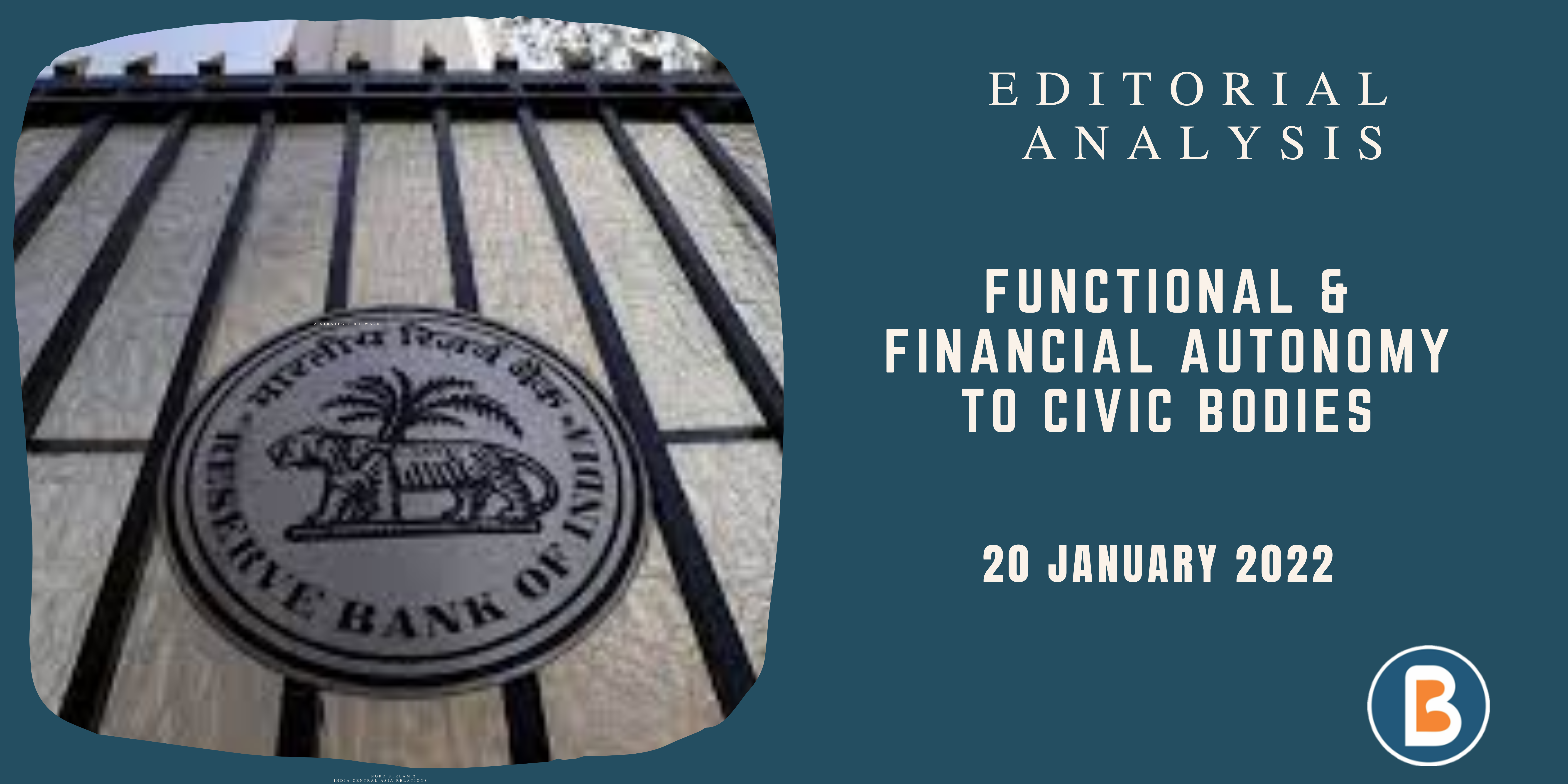Functional & Financial Autonomy to Civic Bodies
Context:
- The RBI in a report in 2021 mentioned that the third tier governments in India playing a significant role in combating the pandemic, their finances have come under severe strain.
- RBI echoed the recommendations of 15th finance commission report on local bodies that emphasised on empowering the city governance structures.
The Finance Commission
- The Finance Commission has granted Rs.4,36,361 crore from the central divisive tax pool to local governments, both rural and urban, for 2021-26.
- Finance Minister Nirmala Sitharaman accepted the 15thFinance Commission (FC)’s recommendations while presenting Union Budget 2021-22.
- The FC is a constitutional body for centre-state financial relations. Local governments like the village panchayat and urban municipality are the third-tier in the Indian governance system, the first being the central government and the second the state.
- Thus, the commission recommends on how much such governments should receive from the central divisive tax pool.
- Of the total grant, Rs.36,805 crore is for rural bodies for local governments (Panchayat institutions) while urban bodies (municipal corporations, municipalities, etc…) get Rs.121,055 crore. An additional Rs.70,051 crore is earmarked as health grants for such local governments.
- In 2020-21, as per the 15thFC recommendation, local bodies have received Rs.90,000 crore. Of this, Rs.60,750 crore is for rural local bodies and Rs.29,250 crore for urban bodies.
Findings of RBI:
- RBI survey of 221 municipal corporations (2020-21) revealed that more than 70% saw a decline in revenues in contrast their expenditure rose by almost 71%.
- RBI report also highlights the limited coverage of property tax and its failure in increasing the revenues of the municipal bodies.
- OECD data shows that India has the lowest property tax collection rate in the world, i.e. property tax to GDP ratio.
Undermining Urban Governance:
- Cities are always treated as adjuncts of State Governments, so urban development is always linked to political and democratic movements in the states.
- The first approach to urban planning on a pan Indian basis took place in 1980s when National Commission on Urbanisation was formed.
- Another intervention was in 1990s through 73rd and 74th amendment, but this was a time of neo liberal reforms which saw withdrawal of state.
- It was linked to the idea of competitive cities to attract investments by urban centres.
Taxation:
- Earlier cities generated huge revenues with octroi but this was taken away by State and Central Governments.
- Now with introduction of GST, the cities are even devoid of financial autonomy similar to that of the States.
Way Forward:
- Our cities are hardly prepared for the impact of climate change nor do they have adaptive strategies
- Leadership in the cities must be elected for a term of 5 years, in some cities the term is just one year.
- With migration happening towards urban centres and there will be significant increase of urban population by 2050, there is need to look at reforms required.
Source: THE HINDU.

